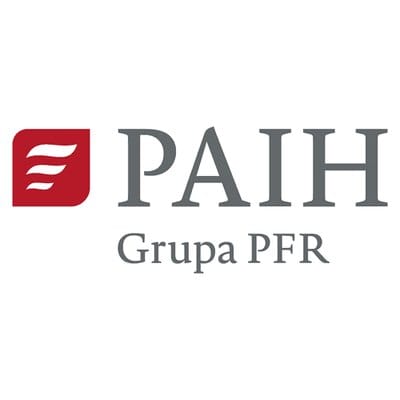Have you just hit upon an innovative idea in your company to create software that will be the “perfect product” for your audience? Great, it’s time to move into action! But… how? In this article, we’ll tell you what software houses are, how to choose the best one, and how to prepare to avoid being surprised by questions about specifications, business goals, and mock-ups.
To begin with… what does a software house do?
Or perhaps even more from the beginning – what is software? In Pot’s nothing but software. Although practically everyone knows the word, not everyone knows exactly what it really means. If we wanted to create a definition, we could say that it is a set of instructions and procedures, and data that allow devices to perform certain functions. Put simply, it makes the application just… work and performs the tasks it is supposed to perform.
The software can be divided according to that software’s purpose. The first type is the system software, which is responsible for the functions necessary for the operation of a computer system. The next is user software, i.e. what is “closest” to the user, executing his commands through applications. These are, for example, word processors or games. In addition, we still distinguish middleware, export systems, database management systems, and firmware.
A software house is a company that develops software. However, this does not mean simple software, but such customized software tailored to the requirements of a specific company – websites, mobile, web and desktop applications, characterized by usability and efficiency. In addition, it must be remembered that such customized systems are constantly being developed and updated as new needs arise. This is also a task for a software house. Cooperation with such a company is also an opportunity to streamline work by automating many processes.
What exactly does the software house do?
“Software development” is a rather broad term. Neither is it the only role of software houses. The first task of such companies, even before starting the actual work, is consulting – specialists, thanks to their knowledge and experience, can advise from a broader perspective what solutions will be best for a particular enterprise.
SH specialists can order not only well-known mobile or web applications, but also, among others: management support systems, geographic information systems, intranets, B2B and B2C platforms, workflow systems, e-commerce systems, ordering systems or loyalty programs, as well as more advanced software, such as solutions for business process management, business analytics, and semantic technologies.
Significantly! Software houses are sometimes confused with interactive agencies, but they are two separate professions working side by side. SH projects are more complex and time-consuming, as they require the use of more complicated solutions, technically unavailable to interactive agencies. Such agencies are more concerned with supporting the brand image on the Internet and focus on effective marketing.
Traits of a good software house
Even before you start your search for the best software house, you need to ask yourself one super important question – what are the specifications of your project? Think through what competencies are required to create the software you need, and whether you need only consulting or to complete the project from start to finish. You should also determine the available budget and the final completion time. All of this will help you eliminate a few positions from the list of potential companies you could turn to.
Time to search. First, review the company’s reviews and portfolio. Find out what projects the chosen software house has done, what technologies it has used, and most importantly, whether it has created projects similar to the one you need. Awards and certifications also say a lot about the specialist. Without bragging… or maybe bragging altogether, why not! Thanks to the 4GoalApp we developed, there is a Mobile Trends Awards statuette on the appvinio shelf! But back to the topic… remember that SH usually have to sign a confidentiality agreement, so they can’t always publish their best solutions. It’s also worth reviewing referrals on industry forums and reviews on social media.
Second – communication. You can check this part right from the beginning. After the first email, you are able to determine whether the company communicates understandable messages, whether it describes in detail what idea it has for the project, and replies to messages in a short time. It’s also good if SH has dedicated tools to help exchange information quickly. These could include Kanban Board, Trello or Jira, among others. In software development, efficient communication is key – if you have to wait for a feedback message for a week and the phone is consistently silent, it doesn’t bode well!
They say that the first impression is the most important, which in this case means contact by phone or email, but the first meeting is equally important. Pay attention to whether employees treat you as an individual or merely as “the next customer.” Also answer a few questions: was the company prepared for the meeting?; did they have preliminary materials developed for your project?; did the specialist ask additional questions to get a better idea of your expectations?; did you catch a common language with the team you are to work with?; is the cost estimate transparent and includes the cost of making functional changes?; will you receive a warranty for the software created? – if you can nod affirmatively to all these questions, you are in a good place!
Watch out for that!
While selecting a software house, one should beware of several seemingly trivial mistakes. The three most important are:
-
choosing the cheapest offer – creating software from scratch is a challenging and time-consuming task, so the cost is proportionally high. As in any industry, a low price usually means lower quality,
-
guided by location – in the 21st century and the era of remote work, distance is no obstacle, so don’t narrow your search only to those software houses that operate in “your” area. Good SHs can even boast of working with foreign clients,
-
expect to finish a project very quickly. Software development is not so “1-2-3 ready”. Analysis, planning actions, testing – all this takes time. Usually, applications done quickly, require many later revisions.
What to prepare before working with SH?
Now that the lecture is over, it’s time for some practical tips. What to talk about in a meeting with software house specialists? You don’t need to have the knowledge of the whole world, in fact, it’s enough if you know… what you want.
First, think about who you are creating the product for. Professionally, users here are called Stakeholders. It’s worth conducting an analysis of the target audience that the software is intended to serve. After consulting more people, you may find that “I think they need this” does not coincide with actual expectations.
Next, think about what the software is supposed to help with, what goals it is supposed to fulfill, what problems it is supposed to solve, and what ultimate business goal it is supposed to achieve. Then write it all down – the easiest way would be a list or table divided into subject blocks, e.g. list of stakeholders, requirements, most common problems, and business goals. You’ve just created a document professionally called a Software Requirements Specification (SRS), which is supposed to clearly and precisely convey the product’s objectives to developers. Such a document is also the basis for the contract concluded before the start of cooperation.
In fact, the more data you collect and provide during the meeting, the easier it will be to create the project you need. Remember to focus on expectations. Finding a solution is the software house’s job. Also be prepared to answer questions about your company’s operating model, the nature of its customers and its work organization. While it may surprise some, such questions will help the SH team better understand your assumptions and the purpose of creating the product.
If you have an idea of how you “see” your application, you can prepare mockups. We are not talking about professional graphics and designs here, but a simple sketch that would just represent your vision. For technical matters – during the meeting, it is worth touching on the budget, billing method, and execution time.
Now you can move on to creating the “perfect product”. As you can see, although initially “software house” or “technical specifications” may sound scary, it is not at all so. All you need is an idea. A team of specialists will do the rest for you.









